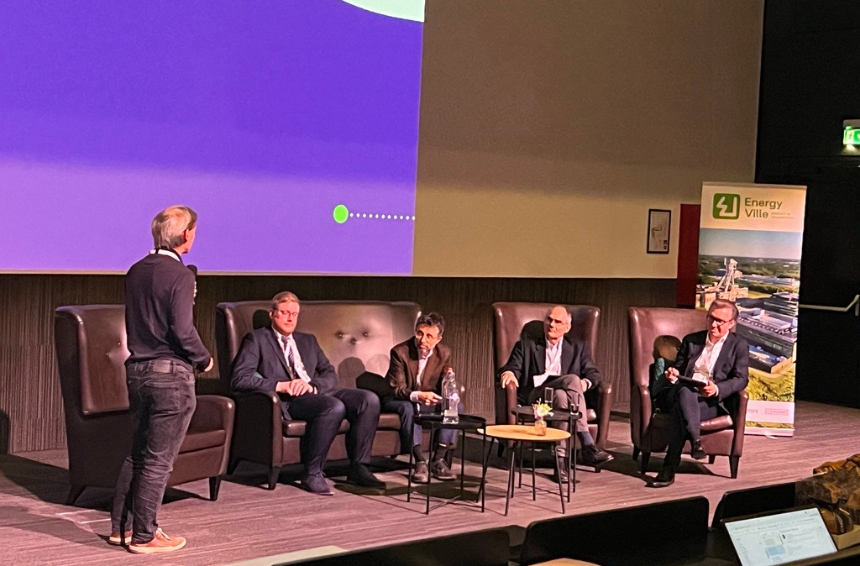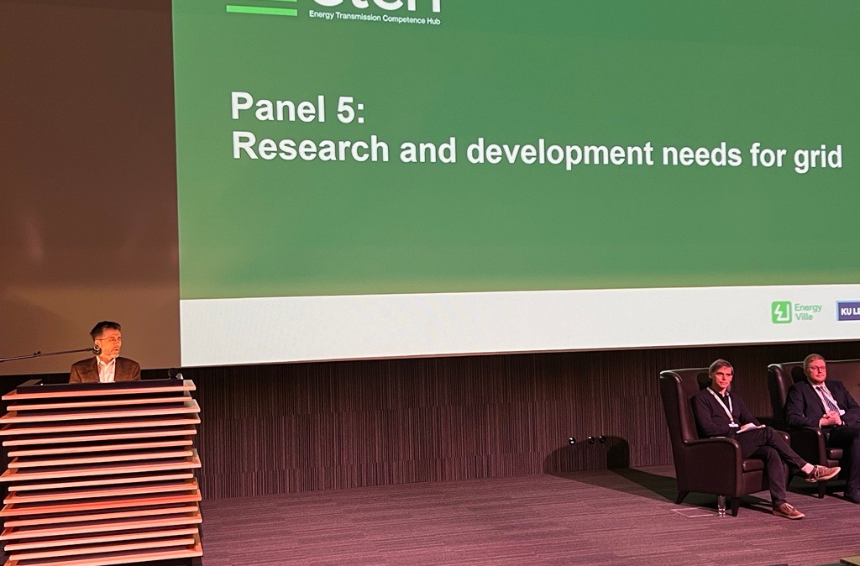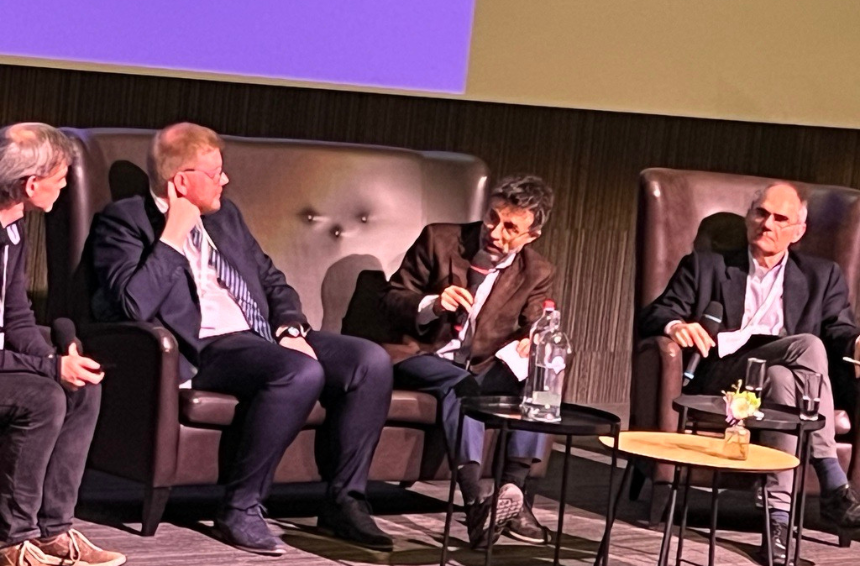Shaping Europe’s energy future: sharing our strategic vision with the European Commission
As a leader of research and innovation in energy transition, we play an important role in shaping policy for future energy systems. Our team is regularly invited to workshops between top thinkers and industry players to discuss the deployment of carbon neutral power systems. In April, two of our colleagues were in Genk (Belgium) to advise on EU policy & strategy and discuss the R&D requirements for the power grid of tomorrow as part of the project to update the European Commission’s Strategic Energy Technology (SET) Plan.
The European Union has set ambitious energy targets, with the goal of becoming climate-neutral by 2050. The importance of the electricity sector, with the electrification of most energy services, is now unmistakable and research & innovation in this sector will be key for developing the new solutions required to decarbonise our energy production and reinforce our power grid.
As a recognised expert in the field of energy transition, it is our place to guide and shape the future energy ecosystem. By leveraging our position as a trusted third party, we are able to gather information from across the energy industry. From our unique standpoint, we can advise on future EU policy & strategy, and share our vision of the technological and organisational blocks that will need to be addressed in order to achieve our collective energy goals.
Challenges facing the deployment of a sustainable EU-wide energy system: strategic vision from our CTO
Our Chief Technology Officer (CTO) Bruno Luscan was recently invited to participate in a workshop bringing together top thought leaders and industrialists to discuss the needs and deployment of carbon neutral power systems. The key take-aways from the workshop were shared with the Council of the European Union to help shape the EU’s SET plan which aims to facilitate cooperation for the development of clean, sustainable, and cost-competitive energy technologies across Europe.
Bruno took part in a panel on the research and development needs for the grid, where he discussed the challenges facing the deployment of a sustainable, cost-efficient, EU-wide energy system.
“These workshops are rich in exchanges and provide an environment where we can come together from across the industry and different countries to discuss our visions and the challenges we are facing. Discussions such as these are an important step on the road towards the energy future we are striving for.” Bruno Luscan, CTO, SuperGrid Institute
Here are the key points he identified as challenges for our future:
The ‘multi’ challenges
In the context of a trans-European grid, with interconnection between countries, massive offshore wind production, and the connection of this offshore wind energy to the onshore grid, we are faced with the challenge of dispatching this power at the lowest cost.
The challenges we face when it comes to achieving this goal involve navigating multi-terminal, multi-vendor, multi-purpose, multi-owner grids. In the long term, we will need to improve our system design & planning, firstly for offshore grids and then for their much more challenging onshore counterparts.
We will need to create operational frameworks to achieve stability, maintenance & reliability, and all this on a massive scale.
Unlocking technical bricks through research and development
There are certain technologies which will facilitate the interaction of the ‘multi’ grids, which are already actively under development. This will need to continue in order to safeguard the future of our grids.
Semiconductors, system modelling & large simulations for AC/DC grids, simulation controls components & subsystems are some of the critical elements which need to be a focus in the coming years.
Shifting from open-ended research to development with specified goals
The development side of “research and development” is becoming extremely important because high level challenges require lots of joint development activities such as roadmaps, structuring demonstrators, frameworks, and stepwise industry standardisation.
Development differs from research as it aims to produce something real and concrete. This is becoming increasingly important as we move forward from theoretical ideas towards real, substantial solutions for future energy systems.
Human talent at the heart of it all
Such ambitious joint development requires strong leadership and expertise. The effort required to coordinate & project manage complex development projects is extremely high and requires effective governance.
To succeed, industry players need to be willing to bring their top talents to the joint table and in turn these talented individuals must be willing to participate in joint development projects. One question looking forward is how to incentivise participation in such projects?
Another aspect where we can identify a lack of talent is in the field of sustainability. The research and development around electrical grids is always very electricity-based because it is performed by electrical engineers. Very few of these engineers are also highly skilled in environmental assessments.
When we consider the size of the infrastructure that will be developed over the next few decades, the choices we make should be both an environmental AND technical decision.
Risk acceptance
Society is becoming simultaneously more risk averse, and more exposed to risk with the effects of climate change. Grid operators are understandably very averse to risk. Today, the collective mindset is that any grid incident will be viewed as unacceptable by both governments & society. This may pose a problem for grid development if it is to develop as fast as is necessary to achieve the EU’s climate goals.
There are examples of situations where the risk has been high but through necessity, teams have worked quickly to achieve results. Think of the extremely fast connection of Ukraine’s grid to the EU which was very risky from a grid point of view but still went ahead successfully.
It is likely that we will need to advance more quickly on project demonstrators moving forward which will require accepting more risk for the advance & benefit of all.
Cooperation and collaboration between stakeholders
The overarching issue which englobes all these previous challenges is the coordination and cooperation between countries, industry, policy makers and academia. It is certain that our research needs to continue, and our development must accelerate if we are to achieve the deployment of a sustainable, cost-efficient EU-wide energy system in time. This will only be possible if stakeholders work together, sharing their resources, talent, and knowledge now and for the foreseeable future.
Each of these issues are key elements for the power grid of tomorrow. At SuperGrid Institute we work daily to meet these challenges, collaborating with the entire energy ecosystem value chain. It’s an honour for us to represent France and contribute to discussions on the future of Europe’s energy plans.





